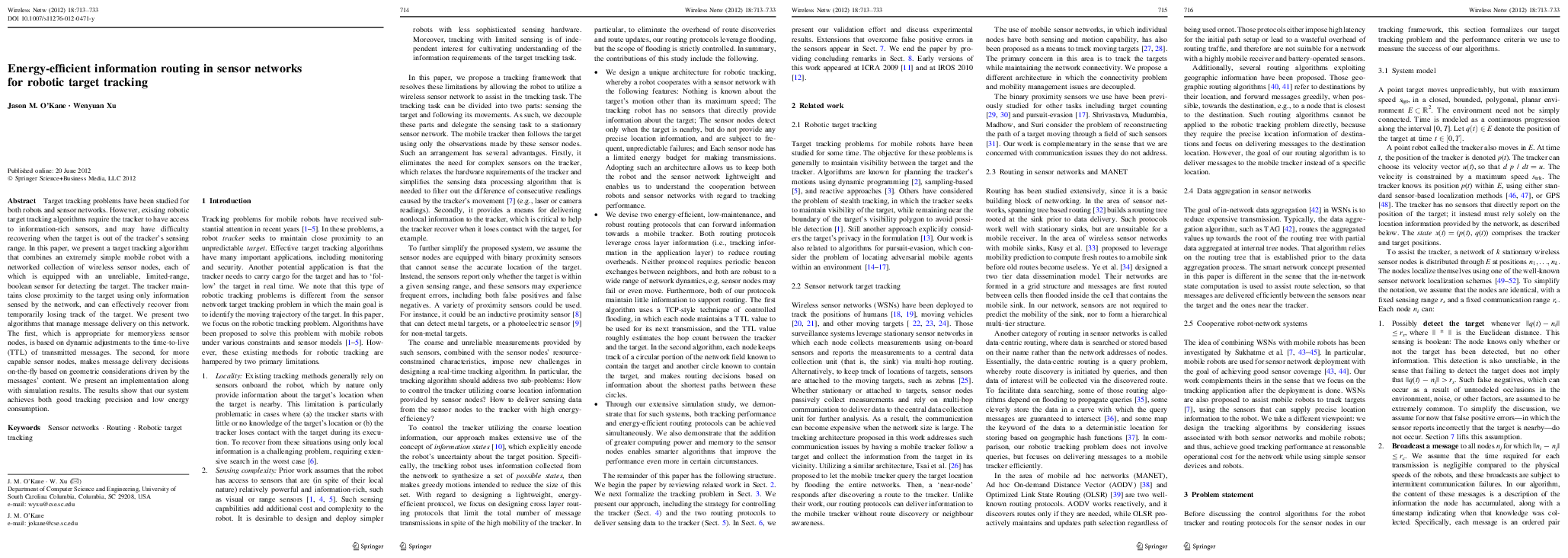 Jason M. O'Kane and Wenyuan Xu
Jason M. O'Kane and Wenyuan XuAbstract Target tracking problems have been studied for both robots and sensor networks. However, existing robotic target tracking algorithms require the tracker to have access to information-rich sensors, and may have difficulty recovering when the target is out of the tracker's sensing range. In this paper, we present a target tracking algorithm that combines an extremely simple mobile robot with a networked collection of wireless sensor nodes, each of which is equipped with an unreliable, limited-range, boolean sensor for detecting the target. The tracker maintains close proximity to the target using only information sensed by the network, and can effectively recover from temporarily losing track of the target. We present two algorithms that manage message delivery on this network. The first, which is appropriate for memoryless sensor nodes, is based on dynamic adjustments to the time-to-live (TTL) of transmitted messages. The second, for more capable sensor nodes, makes message delivery decisions on-the-fly based on geometric considerations driven by the messages' content. We present an implementation along with simulation results. The results show that our system achieves both good tracking precision and low energy consumption.
@article{OKaXu12,
author = {Jason M. O'Kane and Wenyuan Xu},
journal = {Wireless Networks},
number = {6},
pages = {713--733},
title = {Energy-efficient information routing in sensor networks for
robotic target tracking},
volume = {18},
year = {2012}
}
